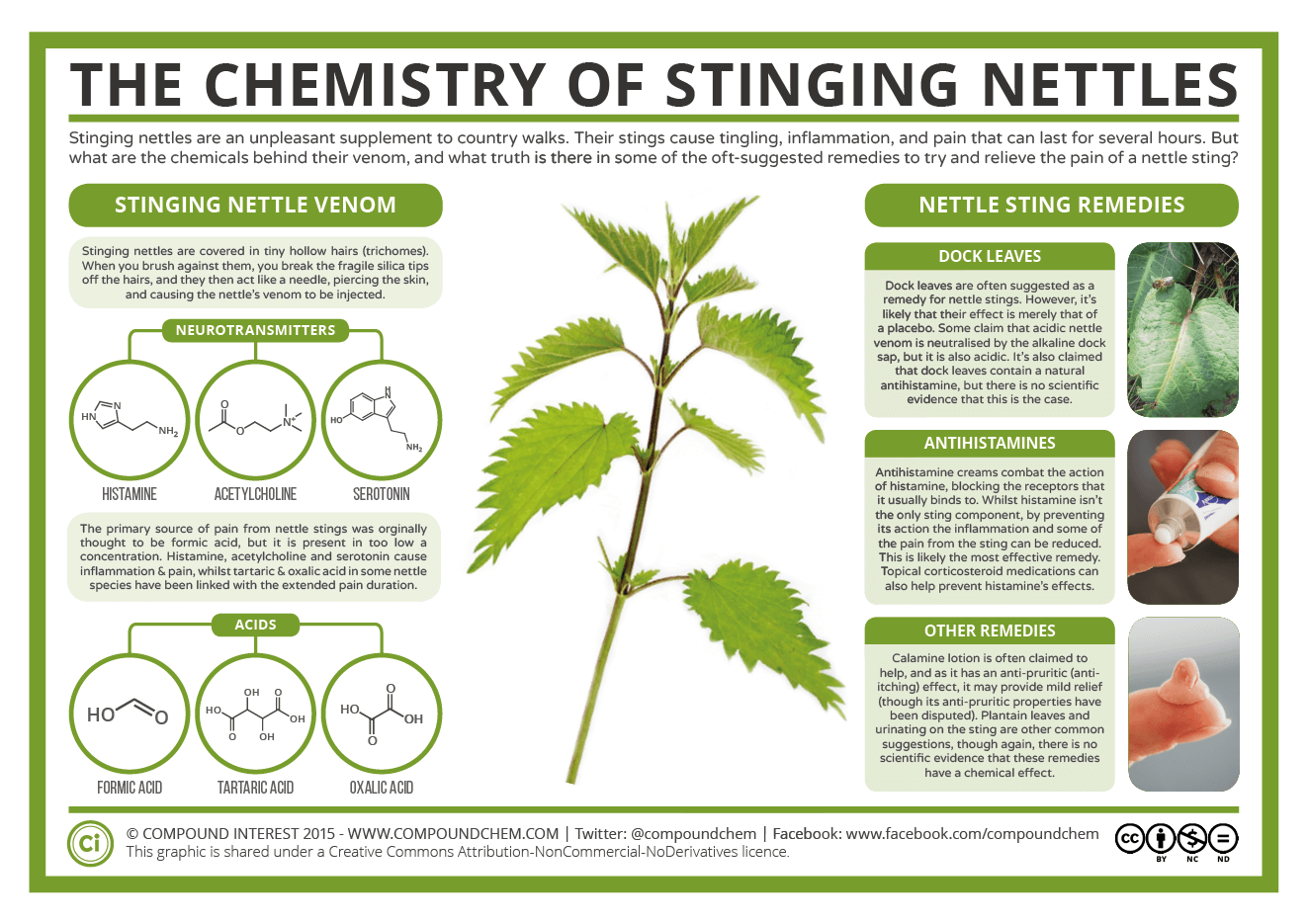A well-known folk remedy for nettle stings is application of the common dock leaf, scrunched up and either rubbed or dabbed on. However, very little research has been done on the chemicals involved. Some assume that dock is alkaline and counters the acidic sting that way, but it doesn't take much research to discover that dock is, in fact, acidic. This leads some people to say that there is nothing in the dock that will soothe a nettle sting, so it must be a placebo. Someone said this to me on facebook today, which led me to do a little research.
Don't get me wrong, I'm well aware of the power of the placebo effect, but I'd be surprised if that's what's going on here. Firstly, there's been at least one occasion on which I've picked the wrong leaf by mistake, and found the nettle sting still hurting hours later. Secondly, this looks like a reasoning error: Dock doesn't counter the acidity, therefore it's ineffective. This fails to consider any other chemical in the nettle sting that might be affected by the dock.

Infographic from Compound Interest detailing the chemicals in the nettle sting, and a possible source of the claim that the dock leaf is merely a placebo. The accompanying article makes clear how limited the research is in this area.
After a bit of digging, I managed to find one scientific study that looked at the effect of dock on serotonin (also called 5-HT), histamine, and acetylcholine, which are all present in the nettle's sting, and also the related compound nicotine. From the results of their tests, they conclude that dock leaf extract specifically antagonizes 5-HT.
In other words, dock leaves work by suppressing the effect of serotonin in the nettle sting.
The original report was published in conference proceedings here (p58) and I'm not very surprised that this has been overlooked. Conference proceedings are not the most visible form of publication for scientific studies. I'm just doing my bit to spread the word about this little study.

No comments:
Post a Comment
I don't know why Facebook thinks this is the most interesting text on the page - it's not, I assure you!
If you'd like to leave a comment, but it asks you to "Comment as" a load of options that don't relate to you, choose "Name/URL". You can type in your name and leave the URL blank.
Do leave a comment (unless the main point of your comment is to advertise your business, in which case it will be deleted). It's always nice to know I'm not talking to myself ;-)